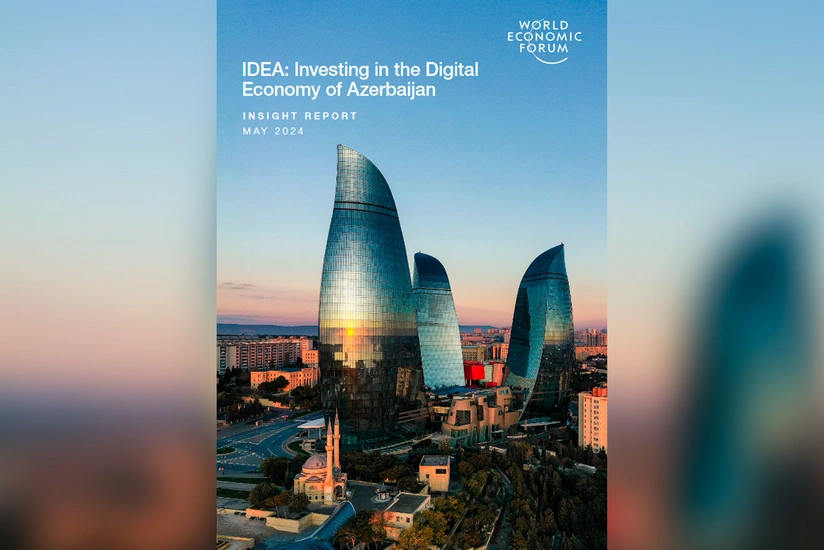WEF recognizes Azerbaijan's strides in fostering startup growth
- 12 June, 2024
- 15:00

Azerbaijan has made significant strides in establishing a conducive environment for startups and innovation, according to a report by the World Economic Forum (WEF) titled "IDEA: Investing in the Digital Economy of Azerbaijan."
Report informs citing the document that the progress is reflected in the creation of numerous institutions and programs aimed at supporting business development and promoting innovation, such as government-organized large-scale events, the development of technoparks, and business incubators. It highlights that, in accordance with a decree by the President of Azerbaijan, the Ministry of Economy is developing a bill "On Innovative Activity" to ensure coordination and development in this field.
In recent years, the digital economy in Azerbaijan has been perceived as an integral component of socio-economic development goals. In line with its national vision of diversifying the economy and reducing dependence on extractive industries, Azerbaijan considers the role of foreign direct investment (FDI) crucial in facilitating digital growth and enhancing global competitiveness. The government of Azerbaijan pays significant attention to attracting foreign investment, implementing reforms, and stimulating the private sector through a comprehensive Socio-Economic Development Strategy for 2022-2026.
While the majority of FDI in Azerbaijan is concentrated in the oil and gas sector, a closer look at the activities of foreign investors operating in the country shows that most new investment projects (from January 2016 to April 2023) were focused on sectors such as financial/business services, software and IT services, and industrial equipment manufacturing.
The government of Azerbaijan is implementing large-scale reforms with an emphasis on the digital economy. The authors of the report note the Digital Economy Development Strategy and the Socio-Economic Development Strategy for 2022-2026 among the measures being implemented. Since December 2022, a special working group has been created in the country under the auspices of the Center for Analysis and Coordination of the Fourth Industrial Revolution (4SIM) to develop this strategy and form a sustainable and competitive digital economy.
